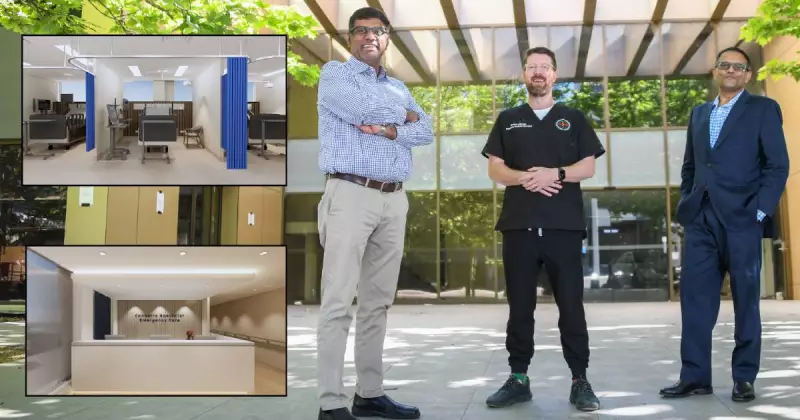
Canberra is set to welcome its first ever private emergency department, a move founders hope will slash waiting times and provide faster access to cutting-edge medical imaging for paying patients.
A New Healthcare Hub for the Capital
The city-based Summit Healthcare Hub on Barry Drive in Turner will house several medical services, including a purpose-built, 17-bed emergency department staffed entirely by senior doctors. The Canberra Emergency Care Centre will treat both children and adults for a wide range of issues, from viruses and minor injuries to chest pain, abdominal pain, migraines, fractures, and dislocations.
However, the facility will not handle life or limb threatening emergencies. Patients can attend with or without private health insurance, but out-of-pocket costs are estimated to be between $300 and $400 per visit, a cost that cannot be claimed through insurance.
Opening Date and Operational Goals
Construction is already underway at the Turner site, with plans to open around March 2026, according to emergency doctor and project co-founder Nicholas Lonergan.
"We're aiming for 40 to 60 patients a day for presentation and we're aiming to have essentially no wait time," Dr Lonergan said. Unlike most public emergency departments, the private ED will not have inpatient wards or operating theatres but will be able to transfer patients to both public and private hospitals as needed.
The hub's integrated design is a key feature. It will be located in the same building as Orthopaedics ACT, Garran Medical Imaging, Capital Clinic Physiotherapy, and pathology and podiatry clinics. This co-location allows for rapid scans and seamless referrals to specialist and allied health services.
Easing Pressure on Canberra's Public Hospitals
Executive Director of Orthopaedics ACT, surgeon Dr Saqib Zafar, is a driving force behind the project. Specialising in bone and muscle injuries, Dr Zafar described the hub's imminent opening as a dream come true and a way to give back to the community.
He hopes this entirely doctor-led and funded project will significantly reduce pressure on the ACT's two public hospital emergency departments. "[Canberra Hospital] is the second or third busiest trauma centre in the country, and the numbers of orthopaedic trauma cases we see are phenomenal," Dr Zafar said.
The hospital serves a vast region of nearly a million people, receiving trauma cases from nearby highways. It deals with skiing accidents in winter, South Coast misadventures in summer, and year-round cycling and sports injuries.
Dr Lonergan explained that in public EDs, patients with less critical issues like broken wrists or ankles often wait for hours as sicker patients are prioritised. He cited delays for scans and consultations as common bottlenecks that the private ED, staffed by senior doctors and with integrated services, aims to eliminate.
Dr Zafar estimates the facility could eventually take 10 to 20 per cent of the workload from public hospitals, particularly by managing patients with "day to day injuries" and facilitating faster follow-up care.
Advanced Imaging and Patient Accessibility
The site at 7-11 Barry Drive in Turner was chosen for its central location, public transport links—including a short walk from the Northbourne Avenue tram stop—and its 71-space underground carpark. Plans for a dedicated drop-off zone are also in the works.
A major component of the hub is the new Garran Medical Imaging clinic. Lead radiologist Dr Jatinder Shekhawat highlighted that in the current ACT private system, PET scans and biopsies for cancer patients can take three to four weeks, critically delaying treatment.
The new clinic will bulk-bill almost all radiology services for cancer patients and offer heavily discounted biopsies. All Medicare-eligible patients will be bulk-billed for PET scans.
The imaging centre will also feature the ACT's first-ever weight-bearing CT scanner and a very high-resolution photon counting CT scanner, which will be the first of its kind in Canberra and only the fourth in Australia.
Physiotherapy services at the hub will include a gym and advanced rehabilitation treatments like gravity eliminated therapy and blood flow restriction therapy.
While private emergency departments are established in other Australian cities, the ACT government has been unusually supportive of this project, welcoming it as a way to increase private healthcare options, offer more choice for Canberrans, and help ease future demand on the public system.





